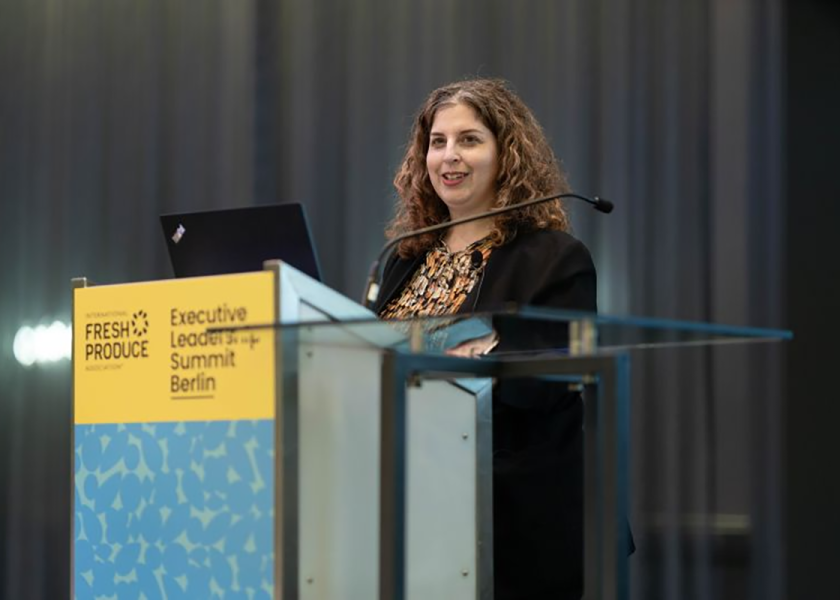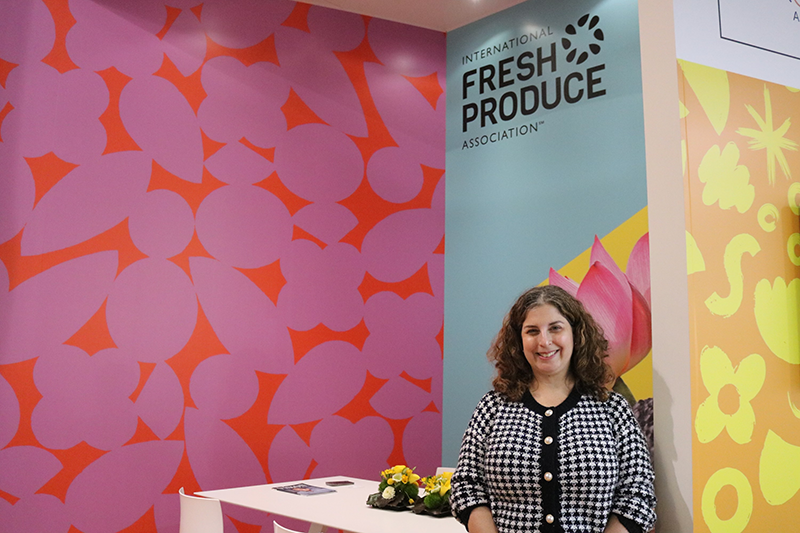IFPA convenes global executive leaders at Berlin summit

BERLIN — International Fresh Produce Association held its annual Executive Leadership Summit on Feb. 6. The invitation-only event, held in conjunction with Fruit Logistica, welcomed more than 120 executive leaders from 24 countries to discuss the major issues facing the industry today.
“The global trends and tides that our industry faces are having more of an impact on the global supply chain than ever before,” said IFPA Chief Membership Officer Miriam Wolk. “Bringing together this group of leaders is such a transformative moment for the year, allowing our industry to spend time connecting and learning about the big picture issues that are defining the global economy. With this knowledge, our industry is better prepared to drive our success on a global scale.”
IFPA says the schedule was designed to take on some of the hottest issues facing the global industry and included panels on fresh produce packaging and emerging global regulations and global industry trends.
Interactive agenda takeaways included:
- Geopolitical concerns jump to the top of the list of concerns. Whether it is trade regulations, international conflict or extreme weather events, the global supply chain is dealing with unpredictable headwinds. Panelists discussed major examples like the disruption in the Red Sea, growing population in the Middle East leading to container planning difficulties for shipping and production shortages caused by climate change.
- Artificial intelligence can be a solution — if the industry ensures it’s not its biggest challenge. Conversation at the summit addressed both sides of the issue — on one hand, AI could be a huge unlock for administrative or operational work like budgets and forward planning. It may also be able to help identify patterns across the global supply chain to create more accurate forecasts. On the other hand, the industry must remember the power and value of personal contact and prepare for the level of governance needed to ensure it can stay in control of AI efforts.
- Transformative change in packaging is needed but not at the sacrifice of safety, agreed speakers and summit attendees. While overall reduction and innovative approaches that decrease environmental impact are critical, summit attendees acknowledged that they can’t sacrifice public health or product quality to do so. One of the most important parts of the solution is education for consumers and policymakers alike.
- Setting the trends is critical. Representatives from ICA Sweden and Spinneys joined IFPA’s Wolk for a panel discussion, titled "Global Industry Trends for 2024." One of the prevailing sentiments was the industry’s need to start setting trends instead of responding to them.
- Consumers increasingly ask where their food is coming from with an emphasis on wanting to feel closer to the origin of their food. Retailers also seeing higher engagement on social media and consumers are learning and changing their relationships to cost and value.
“From packaging regulations to AI, the industry is being faced with many new challenges that will continue to develop with or without our input,” said IFPA Chief Science Officer Max Teplitski. “As an industry we must choose to play an engaged role in the development of these major issues to ensure our needs are understood and considered, and our ability to contribute to big solutions is recognized. The Executive Leadership Summit is an excellent way to kick off the industry’s commitment to transforming the global supply chain each year.”

During the three-day exhibition at Messe Berlin, Feb. 7-9, IFPA welcomed members to its booth to continue the conversation.
“We are here to support our members, and especially to be a help to those members attending Fruit Logistica for the first time,” Wolk told The Packer. “Additionally, we’re here to meet with our members from Europe, Latin American and South America. We truly are a global organization.”







